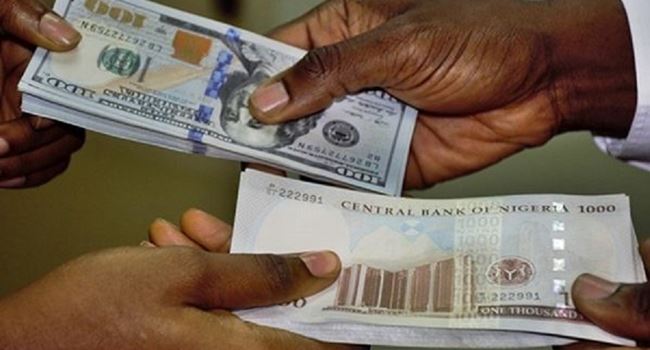The Nigerian naira traded on a cranky bearish line as the currency rate re-crossed N1,000 because to strong demand for US dollars outweighing supply.
As manufacturers’ and other unseen users’ FX logs jerked up, the local currency was exchanged at N1,035.12 against the greenback at the Nigeria Autonomous Exchange rate.
The lack of the apex bank to interfere in the official market has been projected to deteriorate the exchange rate, a move that looks to be part of a new currency control system.
According to FMDQ data, the Naira fell 4.72% versus the US dollar, closing at N1035.12 per dollar on the official market. In the parallel market, the Naira fell 0.41% on the day, finishing at N1,215 per dollar.
According to analysts, early-year demand for foreign money will have a negative run effect on the exchange rate. Without significant forex inflows into the economy, the local currency is expected to crash, according to forecasts from Broadstreet.
West Texas Intermediate (WTI) crude futures rose 1.8% to $71.67 a barrel on Wednesday, owing to concerns of supply disruption in Libya, where protesters forced the closing of the country’s largest oil field, Sahara.
This field was producing around 300,000 barrels per day. In addition, Brent Crude finished at $77.10 per barrel. The NAFEM rate fluctuated between N700 and N1,248/USD last week before closing at N907.1/USD.
This points towards a depreciation of -2.4% or N21.2 week on week. In the forwards market, fx traded within the range of N897.0-N1201.9/USD. BUA Reduces Cement Price, Plans Further Review
In the 1-month contract, the exchange rate appreciated by +2.0% to close at N975.3/USD, and in the 3-month contract, fx appreciated by +2.3% to close at N994.3/USD.
“Based on our channel checks, we note that in the parallel market, the Naira closed at an average of N1,215 on Friday. Therefore, the gap between the NAFEM and the parallel market rate is 33.9%”, Coronation Research said.
According to data from FMDQ, NAFEM turnover decreased by -54.6% or -USD463 million to USD385.8 m on Friday.
The NAFEM window recorded an inflow of USD 32.9 million. There were no injections made by the CBN – for the tenth consecutive week.
However, foreign portfolio investors (FPIs) accounted for 14.8%, non-bank corporates accounted for 53.1%, exporters accounted for 19.8%, and others accounted for 12.4% Nigeria’s external reserves remained unchanged to close at USD32.8.
Manufacturers Association Urges FG to Clear $7 Billion Debt, Warns of Challenging Year Ahead













